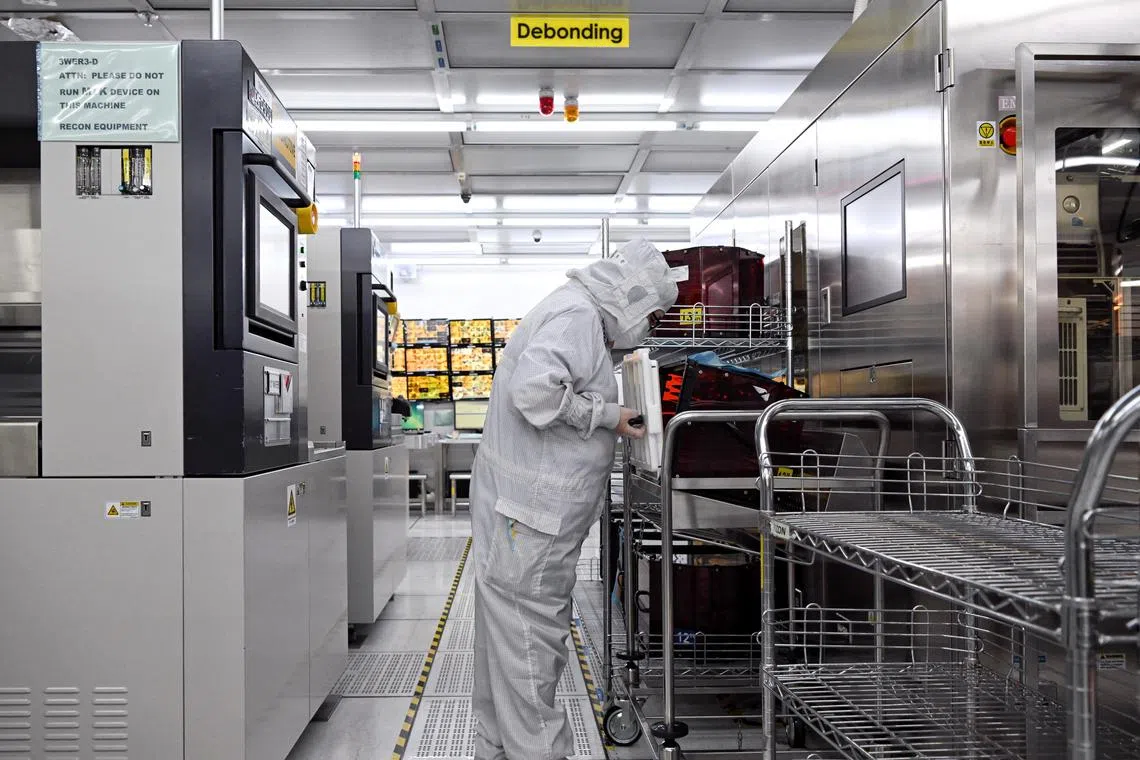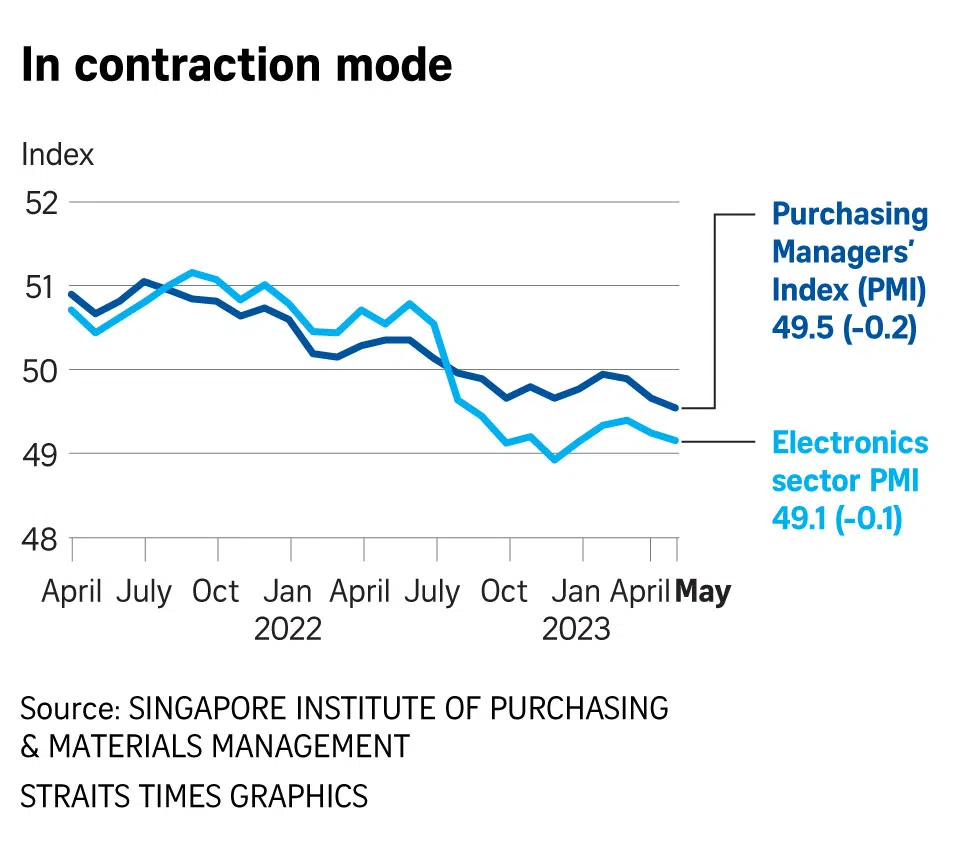Factory activity in S’pore drops for third straight month due to protracted electronics downturn
Sign up now: Get ST's newsletters delivered to your inbox

The Singapore Purchasing Managers’ Index fell by 0.2 point to 49.5 following drops in March and April.
ST PHOTO: KUA CHEE SIONG
SINGAPORE – Manufacturing activity in Singapore eased for a third straight month in May due to a protracted slowdown in demand for electronic goods from major trading partners.
The Singapore Purchasing Managers’ Index (PMI), a key gauge of the manufacturing sector’s health, fell by 0.2 point to 49.5 following drops in March and April,
A PMI reading above 50 indicates expansion; a reading below 50 points to contraction.
The electronics PMI dropped by 0.1 point to 49.1, marking its 10th month in contraction mode.
The drop takes the index close to the 2½-year low of 48.9 it touched in December 2022.
The sector, which accounts for about 40 per cent of Singapore’s manufacturing output, has been in recession since late 2022 as a worldwide slide in demand for electronic goods picked up pace, and is showing few signs of recovery.
Mr Stephen Poh, executive director at SIPMM, said: “(The) outlook of the global economic growth remains lacklustre.”
Underscoring the lack of demand, the latest PMI reading for overall manufacturing showed a faster contraction in new orders, new exports, factory output and inventory.
Finished goods and imports also recorded faster contractions, the PMI report showed.
Meanwhile, input prices posted a faster expansion, climbing for the 34th consecutive month.
“Despite inflation showing signs of easing, the price pressures remain high,” Mr Poh noted.
The latest electronics sector reading was also attributed to a faster contraction in new orders, new exports and factory output.
Singapore’s Ministry of Trade and Industry (MTI) maintained the 2023 economic growth forecast
But MTI noted that growth was likely to come in at around the mid-point of the range amid risks of a longer electronics sector downcycle and weak global demand, especially in advanced economies such as the United States and the European Union – both major trading partners of Singapore.

Meanwhile, Enterprise Singapore said non-oil domestic exports (Nodx) may shrink by 8 per cent to 10 per cent in 2023.
MTI also said that post-pandemic recovery in China – Singapore’s top trading partner – may offer limited spillover benefits, as it was led by services consumption, which is less import sensitive.
However, Mr Poh said manufacturers in Singapore are “still hopeful that China’s reopening could provide a boost to the sector in the coming months”.
So far, China’s recovery has not been as robust
The negative impact of weak demand was visible in PMIs issued this week by other major exporting nations in Asia.
PMI for Taiwan dropped to 44.3 in May from 47.1 in April, while Vietnam’s PMI posted the lowest reading since September 2021.
South Korea’s factory gauge also remained in contraction territory.



